Loans can be really useful in times of money requirement. They are basically funds borrowed that you can pay back in equal installments along with the interest. You can use the money in different ways. However, sometimes it can be tricky to get loans, especially if the amount is big. In such cases, you can put down collateral so that the lenders approve your application. In order to do that, you need to apply with lenders that accept land as collateral.
Putting land as collateral can come with its advantages and drawbacks. In this article, we will discuss property collateral loans, how they work, and how they can help you. If your application is stuck, use the land as collateral for the loan to get approved. But before you do that, read this guide to learn everything about such loans.
Lenders that Accept Land as Collateral
There are different types of lenders that offer land equity loans. These lenders have their own eligibility criteria, loan term period, amount, and terms and conditions. Below listed are some of the lenders from whom you can get loans using land as collateral.
1. Old National Bank
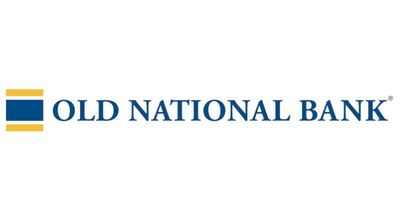
The bank was established in 1834 and has been operating since then. It has become among the biggest banks in the Midwest. They not only offer financial services but also different types of loans including property collateral loans, contraction loans, mortgages, etc. they offer land loans that can help purchase land from 5 acres to 25 acres. However, they require you to pay a down payment that starts at the rate of 35% of the entire loan amount and goes higher depending on the amount, acres of land, and other similar factors. Being amongst the biggest banks, they have around 250 banking centers scattered in the Midwest.
Features:
- Old National Bank is one of the biggest banks in the Midwest.
- It has 250 banking centers.
- They offer different types of loans like land loans, lot loans, construction loans, mortgages, etc.
- The lowest limit of the down payment starts from 35% of the amount and goes up.
- You need to have a good to excellent credit score.
- They charge $850 as an orientation fee.
- $6.70 is charged as a flood certification fee.
- You will have to pay $72 as a tax service fee.
Pros:
- They have 250 branches all across the Midwest.
- They have an option for online application and banking. Therefore you do not need to be physically present to apply for a loan.
- Assistance to first-timers in some states.
- Special loan programs for those of you who are getting mortgages or land loans for the very first time.
Cons:
- You will have to pay different types of fees including orientation fees, tax service fees, etc.
- They will seize your land if you do not repay the loan.
- Brick and mortar are available only in five states.
How to apply?
- You will need to fill out a loan application form either physically at the bank center or online on their official website. In order to do that, you must reside in one of the states where they operate.
- You will have to add all your personal details and contact information. You will need to provide your social security number and a government issued photo ID.
- Along with this, you need to add the details of the loan you are seeking like land equity loan amount, term period, etc.
- When you are done filling out the form, submit it. You will get the approval decision if you are approved by email or call.
- At last, you will have to sign the agreement and wait for the funds.
Statistics
These stats are on Old National Bank based on the customer experience and reviews. As per different surveys, more than 90% of customers have approved and recommended this lender. The rest 10% are either dicey or do recommend them but they have faced issues at one point or another. The most appreciated factor that customers like about this lender is their professionalism.
They have been accredited by BBB and rated A+ there. Speaking of the rates and charges, the latest survey says most customers are satisfied with the loan cost. The lender’s services and responsiveness are rated 4.5 out of 5 by its clients. However there are negative responses from the customers but it is nothing serious, just some minor issues that are resolved.
2. Atlantic Union Bank
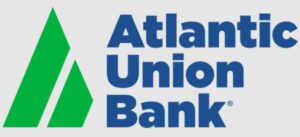
The root of the Atlantic Union Bank goes back to 1902. The motto of this bank is to help everyone to make their dream come true with a home or land. They allow one loan at a time and provide personalized services to their customers. They are among the lenders that accept land as collateral and provide you different types of loans like land loans, home equity loans for bad credit, land equity loans, etc. you can visit the nearest branch or speak on a call with a loan officer who will assist you regarding your loan requirements and provide you with all the details you need. They offer loans for financing residential lands or undeveloped lands.
Features:
- The land loans provide finances for residential lots or undeveloped land.
- You can get personalized services.
- They offer flexible repayment terms.
- You can get personal assistance regarding your loan application either through a call or by visiting the nearest center.
- A loan officer will assist you in getting the loan.
- You will need to visit a branch to apply for the loan.
- You can operate and manage your loan online by creating an account.
Pros:
- They offer attractive rates of interest.
- You can get flexible repayment terms as per your requirements.
- You will get personal assistance with your loan.
- A loan officer will educate you regarding your options.
- There is an option for online banking.
Cons:
- You will need to visit the branch to apply, you cannot file an application online.
- There is no upfront information on the rates and charges.
- The collateral loans on a property are only for financing residential lots or undeveloped land.
How to apply?
- In order for you to apply for the loan, you will have to visit the nearest Atlantic Union Bank branch.
- A loan officer will then assist you in the entire process. You can even contact the loan officer through a call. You can learn about the fee and charges through the loan officer. Moreover, you can also learn about your options. This can be done on call but the application is mandatorily done physically by visiting the branch.
- Fill out the application form with the assistance of the officer assigned to you. They will educate you about all the details and documents you are required to add. Wait for approval and funds.
Statistics
Based on a recent survey that concluded the customer’s experience with this lender, the biggest concern that borrowers have is that they need to visit the branch. Apart from this, 90% of the customers are pretty satisfied with the rates and loan costs. The customer complained about facing minor issues which were later resolved.
When asked if they would recommend this to a friend, more than 85% of the borrowers said yes. Personalized loan assistance for each borrower is the most appreciated service of this lender. Having said that, many customers find the rates even lower than what they had expected. Well, if you’re exploring various financing options, it’s also worth considering alternative avenues for investment and financial management, such as using Online Betting Apps to increase your asset base potentially.
3. LendingTree

LendingTree is a marketplace where you can find all types of loans. It is a one-stop solution to every borrower’s search for loans. You will not only find lenders that accept land as collateral but also, personal loans and even auto equity loans. There is a simple application procedure wherein you fill out a loan request form and the lenders contact you. Therefore you do not have to file an application with several lenders or even look for them. The lenders that are partnered with LendingTree will contact you by reviewing your loan request. They will present you with their loan options. You can get multiple lender calls within a few hours. Therefore you have the leverage of selecting the best option from multiple loan offers.
Features:
- You can pre-qualify with a soft check.
- There are no restrictions on how you use your land equity loan funds.
- They accept all types of credit scores, there is no restriction on that. However, the lender might have some limitations.
- They are not a direct lender.
- The lenders they partnered with might perform a hard pull.
- You get multiple offers with a single application.
- You can track your budget and monitor your credit score via tools available free of cost on their website.
Pros:
- You can find different loan lenders all in one place.
- You get multiple offers with a single application.
- You have the flexibility to use the funds.
- You can pre-qualify with a soft pull.
- The website is free of cost.
- They provide different tools to help with budgeting and credit monitoring.
Cons:
- The lenders might perform a hard pull.
- Your contact details will be shared with lenders.
- The lenders charge different fees that are not in control of LendingTree.
- Lenders might set requirements on credit scores for a land equity loan.
- You get continuous calls which may be annoying.
How to apply?
- You will have to pre-qualify in order to get rates and loan offers. Fill out the pre-qualification form available free of cost on the website.
- You will have to provide all your details including that you are looking for lenders that accept land as collateral. Along with this add the loan amount and your contact details.
- After you submit the form, the lenders will start to call you. They will present you with their loan offers.
- Review all the options precisely and s;e;ct the best that suits your requirements.
- Fill out a proper application form along with all the documents. Make sure you meet the eligibility criteria of the lender. The lender might pull a hard check on your credit, which will negatively affect your credit score.
- Wait for the approval, you will receive the funds after you have signed the agreement which will be presented to you on approval of your application.
Statistics
LendingTree is a reputable website that has provided satisfactory services to its customers, as per recent research. The most appreciated service is that they make it possible for more than one lender to give a quote for rates. More than 80% have rated them 5 out of 5. Speaking of negatives, there is less than 5 percent of borrowers were not satisfied with them.
The borrowers have complained about matching with ridiculously expensive lenders and lenders rushing into everything. However, the complaints are all regarding the lenders and not about the company.
4. Rocket Mortgage
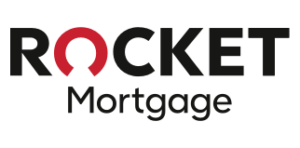
Previously known by the name of Quicken Loans and renamed Rocket Mortgage in 2021. They provide a completely digitized application procedure for collateral loans on the property. They provide tools to help you with application and you don’t even have to be physically present at the center. In case you feel stuck in any phase, you can always get support via emails or even on call. You can get customized rates but you will have to go through a hard pull. A hard pull is a way of verifying your credit history and score but this negatively affects your credit score.
Features:
- They perform a hard pull. You will get customized rates only after the hard pull.
- The entire application is based online.
- The application process is less complicated.
- They will charge an orientation fee.
- They offer different types of loans including home loans.
- You can get a loan for a term period starting from 8 years to 30 years.
- You can get refinancing options for financing an existing loan.
Pros:
- Online process of application.
- You can alter your pre-approval letter.
- The interest on mortgages is lower as compared to other lenders.
- You can get the assistance of a loan officer on the phone if you want to.
- The minimum down payment requirement is quite low.
Cons:
- You need to get your credit checked before getting rates.
- Credit checks will reduce your credit score.
- You cannot get home equity loans here.
- They charge a high orientation fee.
How to apply?
- You can either apply through their app or via the website. Initially, you will have to create an account.
- Once an account is created, you will have to answer the questions like your ZIP code or the area where you wish to buy the land.
- Those of you who prefer physically apply can contact brokers that are affiliated with rocket loans.
- After answering all the questions and providing all the details, your profile will be reviewed.
- You will have to go through a hard pull for verification purposes. Further, your application will be forwarded to the automated underwriting system.
- You can monitor your loan process through your account. While the loan is processed, you can sign all the paperwork.
- Once the loan is processed, you will receive the funds.
Statistics
Different U.S mortgage studies have reviewed what the borrowers have to say about this lender and the responses are pretty good. On average, most borrowers have rated more than 85% on the satisfactory scale. Moreover, they are rated 5 out of 5 points in the different varieties of loans.
The most appreciated feature of this lender is the simplified and smooth application process and monitoring of the status of your application. However, in terms of fees and charges, the orientation fee is higher as per the latest survey based on customer reviews but the interest rate is as expected. The borrowers have marked its lender as the most trusted as it is backed by the Federal Housing Administration, a government housing administration.
5. Credit Union
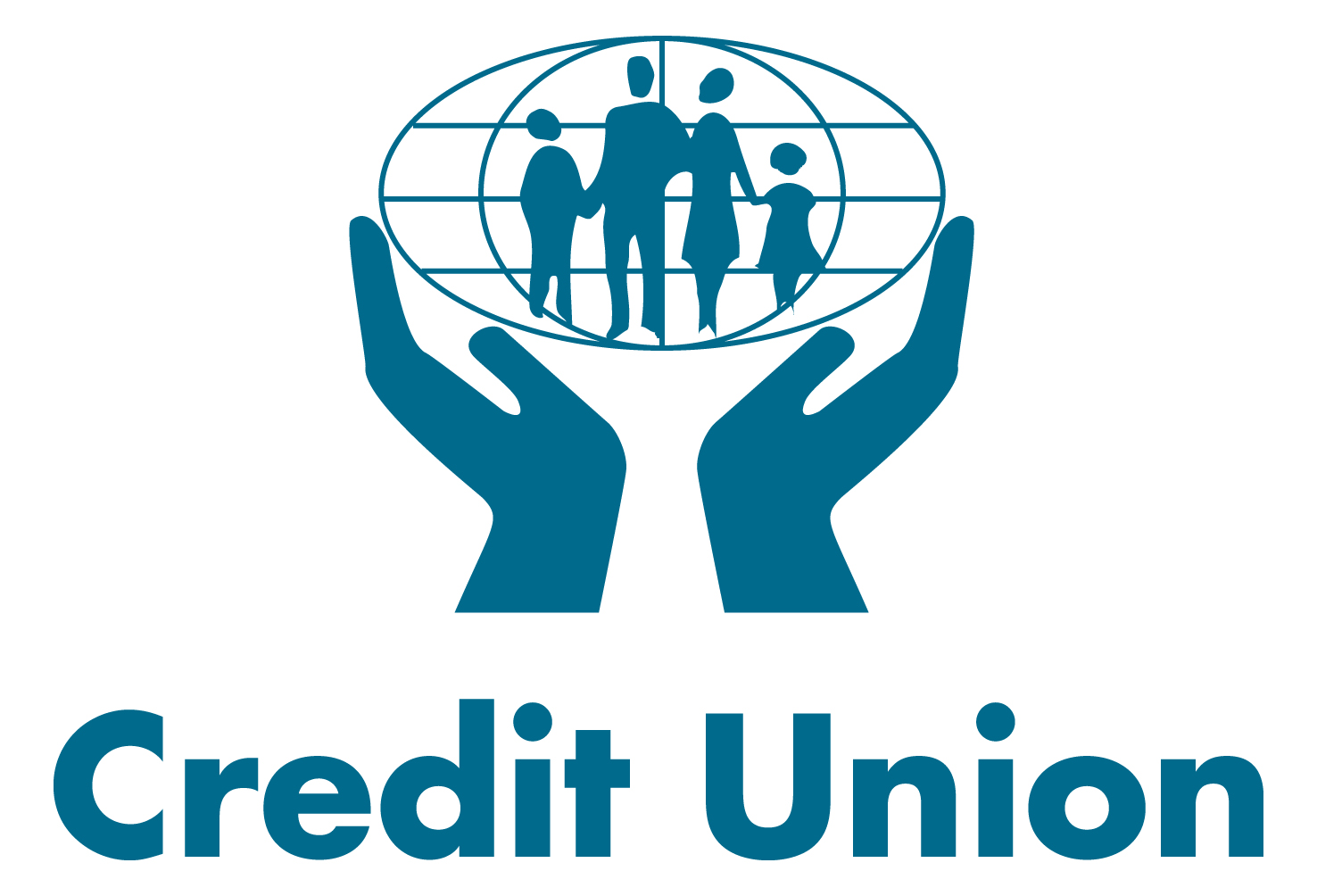
Credit Union is a type of financial institution that is a non-profit corporation. It is owned by its own members. Most of you are wondering why they are a great option to get a loan using land as collateral? It is because they charge interest rates and fees that are comparatively lower than online or local lenders and even national banks. Along with this, the terms of the loan are very simple and the regulations are lenient. But you can only join a credit union if you reside anywhere near it. If you are not a member of the credit union, you need to be one to get a loan using land as collateral. Although it is not a for-profit institution the rules of the collateral loans are the same. If you do not repay it back, your land will be seized.
Features:
- It is a non-profit corporation.
- It is owned by its own members.
- They do not pay federal taxes.
- They offer all types of loans for the welfare of their members, even property collateral loans.
- The rate and fee charged by credit unions are lower than most lenders and banks.
- There are not many fees or charges.
- You can get a loan from them only if you are a member.
Pros:
- The rate of interest on collateral loans on property or land equity loans is pretty low.
- Leniency in rules and regulations as compared to other lenders.
- Fees are low.
- They offer a variety of loans.
- The services are more personalized because of the group belonging to the local neighborhood.
Cons:
- You need to be a member of the union if you wish to get a loan.
- They will seize and sell your land if you fail to repay.
- There are limitations on who they approve as members.
- Not found in all areas.
How to apply?
- If you are not a member of a credit union, you will first have to become one. Each credit union has different procedures, so you can visit your nearest and apply.
- Gather all the documents of the land you wish to put as collateral. But first, make sure that the union is amongst lenders that accept land as collateral.
- You will also have to gather all your documents like your ID, income proof, resident proof, etc.
- The union will present you with their loan option for property collateral loans. If you wish to get it, you might need to file a proper application along with all your details and documented proofs.
- The credit union will verify all your details and approve you.
Statistics
Credit unions have never been a focus of the public before. But as time is passing and the public is losing trust in banks and online lenders, the shift of focus from banks to unions is pretty noticeable. Credit unions are owned by their members but are in competition with other financial institutions. The members of credit unions claim to work for the welfare of one another and help only their members when they need funds. This drawback is a barrier for most borrowers who avoid credit unions, says recent reports and studies.
However, more than 70 percent of borrowers claim to go to credit unions if given a chance to choose between the union or bank for a collateral loan. The rest 30 percent say unions lack professionalism and cannot be relied upon.
6. United Bank
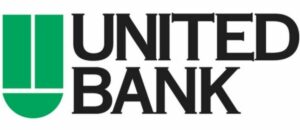
United bank has been helping millions of its customers to make their dream of having a property true since 1839. It is one of the oldest and now biggest and most popular banks in America. They have special mortgage professionals; ls to help you out with these loans and queries related to them. They aim in providing the best of the best services to their customers. You can pre-qualify within minutes. Pre-qualification does not affect your credit score but it will provide you a clear picture of where you stand. If you get approved in pre-qualification, only then you can move ahead in the application process. They have different mortgage options like fixed or flexible home loans.
Features:
- They provide you with refinancing options.
- You get two home loan options, which are fixed and adjustable loans.
- The pre-qualification result is provided within minutes.
- If rates are not in your favor, you can avail of their rate watch feature which notifies you via email when rates change.
- They provide you tools like loan calculators that help you to make an estimate on your loan requirements.
- You can get assistance from a loan officer.
Pros:
- You can get personalized assistance from a loan officer.
- You get two home loan options.
- You can refinance your existing loan.
- They provide tools to help you with different financial estimates.
- The rate watch feature notices you when rates are dropped.
Cons:
- You can only apply if they have a branch in your state.
- They do not provide land equity loan.
- You only get rates and fee information when you pre-qualify.
How to apply?
- They have online banking features but speaking of mortgages, you will have to go to your nearest United Bank branch to apply. If you want to learn about the loan and the procedure, you can call a loan officer or visit the branch to physically learn about it.
- The loan officer will help you throughout the application process. You will be informed what documents you need and what you will have to provide.
- Fill out the form carefully and provide all the documents. Once completed, submit your form. You can look at the status of your loan application online.
- If it is approved, you will either receive a call or an email. You can sign the final agreement and move forward with the funding process.
Statistics
Customer satisfaction with United Bank mortgages is 50-50. Although they seem to be pretty satisfied with their other services, speaking of its mortgage loans, the borrowers claim the services to be a little on the slower side. The most appreciated feature is the personalized assistance for a loan application, which makes the process pretty easy and simple.
However, many customers have claimed difficulties and are stuck in either setting up their accounts or payments. The survey says that problems faced by borrowers are not major or serious and are easily resolvable.
7. FHA Loans

If you are looking for land to start immediate construction for a house, there is no better option than FHA. FHA is short for federal housing administration and it is governmentally backed. Moreover, they approve all types of credit scores but with a condition that they should be above 580. You can apply with a score below 580 (500 to 570), but the down payment will be high. Below 500 scores are not accepted.
You can get a loan for a term period of 15 years to 30 years. FHA requires you to pay two insurance premiums that are meant to protect the lenders when you fail to repay. It is mandatory to pay Upfront mortgage insurance premiums (1.75% of the loan amount) and Annual mortgage insurance premiums (0.45% to 1.05%). You will also need to provide a down payment that depends on your loan amount.
Features:
- The down payment starts at 3.5% of the loan amount.
- 10% down payment if your score is 500 to 570.
- FHA will provide you mortgages even if you do not meet the requirements of conventional mortgages.
- There are no restrictions on bankruptcy.
- The Upfront mortgage insurance premium charge is 1.75% of the loan amount.
- The Annual mortgage insurance premiums charge is 0.45% to 1.05% of the loan amount.
- The Federal Housing Administration is a government basket administration.
Pros:
- The credit score requirement is low.
- If you have a credit score above or equal to 580, you can make a lower down payment.
- They will easily approve of you.
- They also cater to lenders’ interests.
- APR charge is lower than most lenders.
- Debt to income ratio requirement is low.
Cons:
- You will have to mandatorily pay two insurance premiums.
- Whatever the requirements of the property are, you will have to meet them.
- There are not enough attractive loan offers.
- You will have to pay a higher down payment if your credit score is between 500 to 570.
- If you have a low credit score, i.e. Below 500, you cannot apply.
How to apply?
- Gather the documents required to file an application. You will need tax returns of at least two years, pay stubs (the latest two), your driver’s license, and complete statements of all your assets.
- After you have gathered the documents, you can file the application. Once you fill out the application, submit it.
- Your details will be reviewed and verified. You will then be presented with different loan offers as per your application form.
- Review your options and select the one you find best as per your requirements.
- File a complete application with the loan option you selected. Once you get approved, you will receive the funding after you spy the down payment.
Statistics
Federal housing administration, i.e. FHA is government-affiliated and that is why borrowers have rated it 5 on 5 points on trust. The most appreciated part about this lender is that they accept low credit scores. The latest research shows that more than 95% of borrowers approved of these lenders and said yes to recommending it further to their friends and family.
There are minor issues that customers rarely face like slow service or property requirements. But these issues are negotiable and resolved. The borrowers seem to be quite satisfied with the lender and its loan offers.
8. Bank of America Mortgage
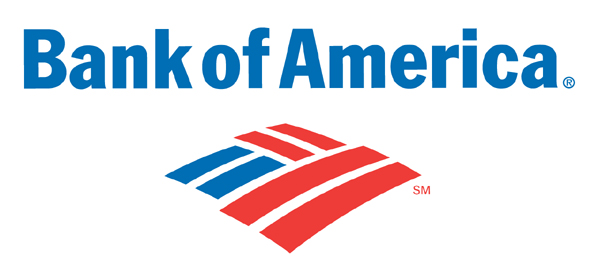
Bank of America is the most popular and second-largest bank in the entire United States of America. They offer different types of loan options like home equity loans. It provides loans that are affordable and even lower or middle-income borrowers can get them. The application process is not only rapid but it is entirely online. Therefore you can file an application from your comfort zone. If you are a first-time home buyer or are interested in home equity options, Bank of America Mortgage will be a good choice for it. They also have refinancing options and pre-qualifications within minutes. With 3900 branches spread all across the country, this lender helps meet your loan requirements.
Features:
- You can review the mortgage rates on their website.
- They have complete transparency when it comes to fees and rates.
- The fees are comparatively lower than most home loan lenders.
- You need to be a part of the Preferred Rewards program at the bank to get the discounts.
- They do not provide USDA loans.
- You can get conventional, FHA, and VA loans here.
- The mortgage orientation fee for existing customers is reduced from $200 to $600.
- If you are an exciting customer of the bank, then you will get some discount on the interest rate.
Pros:
- Discount for existing customers.
- You can go through a soft check pre-qualification to know if you will get approved or not.
- All the interest rates and loan options are displayed on the website.
- You can refinance the funds.
- You can get conventional, FHA, and VA loans.
- You can opt for low mortgage and credit score requirement loans.
- The entire application process is online.
Cons:
- They do not offer USDA loans.
- They are not clear about the fees even in terms and conditions.
- No option for alternative mortgages.
How to apply?
- You have the option to apply either online or physically. If you choose a physical application, then you can visit the nearest center to fill out the form.
- Those of you who choose an online application can apply through your mobile app or website.
- First of all, collect all your documented proofs of income, employment, identity, assets, and other similar documents. You can refer to the checklist present on their website to know what documents you need.
- If you are an existing customer of the bank, login to your account and start applying, you do not need pre-qualification. However, if you are new, you will need to requalify because the bank does not know your details and credit information.
- Now either you can look for a home yourself or from Bank of America’s Real Estate Center which will help you find a local house and broker.
- Fill out a final application as per your requirements and mortgage needs. You will receive a closing date when you will be approved.
- The funds will be transferred after the closing date and before that sign all the paperwork.
Statistics
More than 81% of customers choose the online mode to apply and claim that this feature is comforting. They have an A+ rating on BBB. The survey states that customers give 4 out of 5 points on loan types to the bank. The affordability is rated 5 on 5 and they claim the rates to be what they expected.
According to the latest research on borrower satisfaction, almost 95% of borrowers are pretty satisfied with the bank and would recommend it to others. However, the other 5% have faxed certain issues but none are related to mortgages. The best service that is rated the most is their online application process which is smooth yet rapid.
What are Collateral Loans on Property?
Collateral loans are those loans wherein you need to put down an asset as collateral. Most of the time, people put down their lands as collateral. However, you can even put your car, house, or other valuable prosperity. Collateral loans are a type of secured loan. But the land must have an equity value.
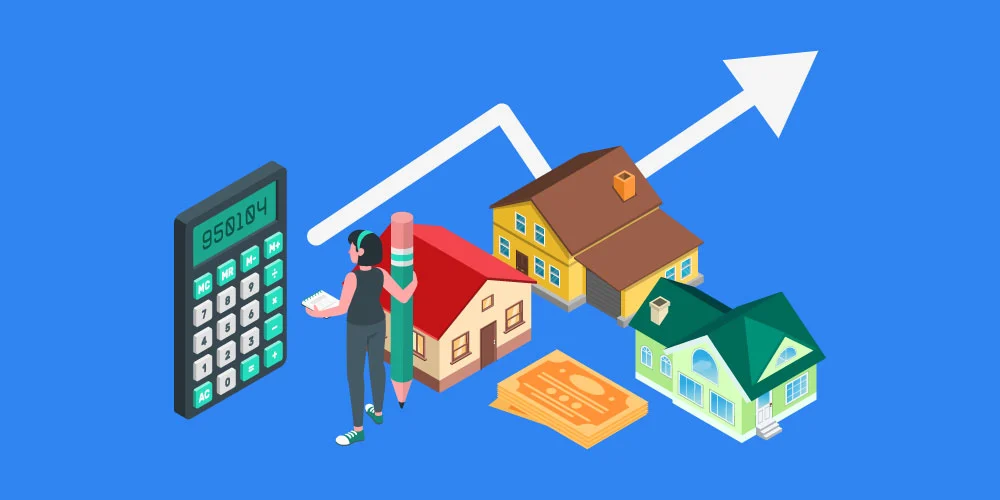
This raises the question of what land equity actually is? In order to get property collateral loans, your property must have an equity value. The equity of land is measured by subtracting the amount owed on the land (if any) from the actual value of the land. The difference between these two gives you the equity value of your land to get equity land loans.
Lenders market land equity loans as a pathway to resolve your money requirements. However, research indicates that these loans can harm borrowers and there are better alternatives. The extent of setbacks of these loans takes over its benefits. The specific research further says that most of the time the outcome of lending land equity loan is poor.
This is because if you fail to repay the loan, the lender will seize your property and you are no longer in possession of it. The borrowers end up losing the title of their collateral property. Therefore these loans are considered risky for the borrowers. This is because the lender will sell your property to recover the losses they have to undergo because you failed to pay back the loan.
If you wish to get this loan. You will file an application with the lenders that accept land as collateral and the title of the property will remain neutral for the loan lifetime. The research also reviewed better alternatives that do not involve the borrowers to risk their assets. The review says that if you can opt for better options, you must. Lenders that accept land as collateral will seize your property in case you make a default.
Loans Accepting Property as Collateral
Land equity loans can be of two types based on the type of land. If the land is raw and no property sits on it, the value of the land is lower. On the other hand, land with property or enhancement of any kind has more value to it. This is because the additional work, money, and construction costs are added to the enhanced land.
There are two types of property collateral loans. Property loans are similar to land loans. The land is called a property after it is enhanced. The loans on a property split into two types, which are:
-
Mortgage Loan
A mortgage loan is meant only and only for purchasing a house. The house you are purchasing will be kept as collateral to provide you the mortgage to purchase the house. Basically, the lender will provide you with funds that you can use to purchase the house. However, the house you bought will be kept as collateral until you pay back the mortgage.
If you fail to repay the loan for 120 days, the lender will seize your property. Through an entire legal proceeding, the property will be taken over by the lender, which would be further sold to get the money back.
-
Home Equity Loan
These loans are similar to mortgage loans but the usage of funds is not restricted. To get this loan, you must be a homeowner. You will have to keep your house as collateral and the lender will provide you the funds in exchange. Those funds can be used for any purpose. There are two main pinpointers that you need to know about this loan. Firstly, you must be an owner of the house in order to get this loan. Second, in case you fail to repay the loan, your property will be taken over by the lenders through proper legal channels. It is then to be sold further to get the money back.
Even if your house is sold by the lender and gives them more money than you owe, you will not receive the difference back. Each and every penny they make after selling your property will belong to them and you do not have any rights to it.
Loans Accepting Land as Collateral
Land loans are different from collateral loans on the property. As already mentioned, land does not become property until it is enhanced by any construction. We have already discussed two different types of property collateral loans. Now let us learn about different types of loans using land as collateral.
-
Construction Loans
Construction loans are the same as landscaping loans with only one difference. Landscaping loans are taken to make changes to living and non-living, whereas construction can only be performed under non-living. Building a garden comes under landscaping. Therefore if you want to start immediate construction or landscaping, you can get a loan from use land as collateral for the loan.
This loan works best for those wanting to purchase land with an intention of starting immediate construction. The lender will provide you the funds in exchange for the title of the land that you bought with those funds. You can purchase and pay for construction in a lump sum via this loan. The loan can be paid back in installments of monthly payments.
However, you do need to repay the loan. In case you fail to pay back the loan, your land will be repossessed by the lender. The lender will sell your land to get the loan amount back. By performing contraction on your land, the value of the land would have been increased but you will not have any rights on the money that the lender makes by selling your land.
-
Land Loans
The lenders that accept land as collateral can provide you with land loans. Land loans are more suitable for those who do not have an intention of starting an immediate construction. Therefore you can get funds for purchasing the plot. The land you will be purchasing will be kept as collateral for this loan. The amount of loan using land as collateral differs from land to land.
Raw Land Loans
Land without any utilities or human touch is considered raw land. These lands do not have any facilities, electricity, roads, or sewers around. These lands are completely raw. To get this loan, you must have a plan for how you can use the land. Without a well-thought-out and thorough plan, you might not be able to get this loan. These loans are hard to get compared to other land loans. This is because you not only need a detailed plan on how you will develop the land but also a large down payment.
Unimproved Land Loans
Improved land is more developed than raw land but less developed than improved land. These lands have slightly more amenities like roads, sewers, electricity, or other such facilities. However, these facilities are not enough and the land needs improvement. These loans are equally difficult to get when compared to raw land loans but the risk in these loans is lower. You will need a full-fledged and detailed plan on how you will develop the land properly. These loans require you to have a good credit score along with a large down payment.
Improved Land Loans
A land with all the amenities like roads, sewer, telephone and internet towers, electricity and water facilities and other such factors comes under improved lands. These land loans are costlier than raw land loans and unimproved land loans. These loans are costlier as you will need larger loan amounts to buy these lands. However, the interest rate on these loans will be less. Moreover, there is no requirement for a full detailed plan on how you will develop the land. For a lender, improved land loans are relatively less risky, and therefore not only the interest is low but the down payment is also less.
-
Land Equity Loan
Just like a home equity loan, there is a land equity loan. The lenders that accept land as collateral will provide funds to you in exchange for your land’s title. In order to get this loan, you must have land and its title should be lien-free. You as a landowner can use your land as collateral in order to get a loan. These funds can be used for any purpose and there are no restrictions on the usage of funds.
The amount you get in a loan depends on different factors like whether it is raw, unimproved, or improved land or if there are any constructions done on it or not, etc. These loans are risky for the borrowers because if you fail to repay the loan, the lender will repossess your land. They will then sell it to get back the amount you borrowed.
Types of Land Equity Loans:
Land equity loans are of three types. These are:
- Land Equity Cash-Out Refinance
Cash-out refinance means taking a loan on the equity value of your land but the loan amount is more than you owe. The funds left after paying the mortgage can then be used to meet your other financial obligations.
- Land Equity Line of Credit
Line of credit loan means when you take the loan amount that is equal to the amount you owe. The loan is taken against the equity value of your land. But there are absolutely no extra funds left. You take what you owe and pay the mortgage with it without saving any.
- Land Equity Construction Loan
If you already own land and you are planning on building a property on it immediately, you can get this loan. You will have to show a detailed plan of how and when the construction is going to start and everything related to it.
Collateral Loans on Property: Pros and Cons
Everything has its own advantages and disadvantages. If you are planning on getting equity loans on land, you must know what comes with it even if it is bad. In simple words, you should know what you are getting into. Knowing the advantages and disadvantages of a loan helps you make an informed decision about whether or not you want to take it or if it is worth the risk.
Pros:
- The borrowers are less likely to default on repayments because their land is at risk.
- Even if the borrower fails to pay the loan, the lender can seize their land and get their money back.
- This is a type of secured loan just like title loans. Therefore the risk is low.
- Being a borrower you can easily get approved if you use land as collateral for loan.
- It is easier to get this loan.
- The interest rate is low because the risk is low.
- You can get a bigger amount of loans from lenders that accept land as collateral by putting your land down.
- Anyone can own land in their name by getting land loans.
Cons:
- In case you fail to repay the loan, your property will be repossessed by the lender.
- If you do not own the land, you cannot get this loan.
- If you already have an outstanding loan on your land, you cannot get fresh property collateral loans.
- Many collateral loans for land require you to have a high credit score.
- Lenders that accept land as collateral may ask you to put down larger down payments.
Collateral Loans on Property: Qualifications
Every lender has set certain requirements that you need to meet if you want them to fund your application. These requirements are set in order to ensure that you are a reliable candidate and that you are not just playing around. Moreover, the eligibility criteria make sure that you are right for the loan. But as already mentioned, each lender has their own criteria for this. However, there are still some common requirements that you must have.
- You must have an excellent credit score. If not, at least have a good credit score.
- You will have to provide an explanation or a detailed plan on how you will use the land, in case of land loans. In the case of equity loans, there are no requirements for this.
- You should have a good or excellent debt-to-income ratio.
- Always highlight the important factors about your property.
How Does Land Equity Loan Work?
Firstly the land must have an equity value for you to get a land equity loan. The lenders that accept land as collateral will put a lien on your land’s title when you get this loan. Therefore you must own land to get this loan unless you want a land loan. The factors that affect land or property collateral loans are:
- Equity Value
The equity value of your land is calculated by subtracting the outstanding amount of land and the actual value of the land. The amount left after this subtraction is your land’s equity value. The lenders that accept land as collateral will either check your loan-to-value ratio or your land’s equity amount. This will indicate the value your land holds and therefore affects the loan amount you can get.
- Requirements
Every loan and legal money lender has certain requirements you need to meet. This eligibility criterion differs from one lender to another. However, there are some key requirements that every land loan lender has in common. These are checking your credit history, debt-to-income ratio, and income proof.
How Can You Use a Land Equity Loan?
In order to use the land equity loan, you first have to know the equity value of your land. You can find that by subtracting the outstanding credits on your land from the total value of the land. The difference is the equity value of your land. You can now use the loan you took on this value in various ways.
You can use the funds for landscaping. Landscaping means establishing a garden on your land. Who does not love green grass to walk or sit on or a beautiful view to look at from your window? Landscaping helps make your land a pretty piece by creating a garden.
You can also use the funds for mortgages. You can get a property collateral loan if you do not own land, but when you do, you can use the land equity loan as a mortgage. But how?
- Start by looking for lenders that accept land as collateral (equity)
- Review the eligibility requirements that the lender has set. Also, check if the lender meets your needs.
- Check your credit score and debt-to-income ratio and make sure it meets the eligibility.
- Gather all the documents and file an application.
Alternatively, you can use a land equity loan for construction. In order to do this, you need to look for a lender that allows you to use land as collateral for loan. The steps to use an equity loan of land for construction are just the same as using a loan for mortgages.
Property Collateral Loans: Things to Keep in Mind
Land loans are not like any other loan. First of all, your land or property is at risk. Secondly, there is always a risk of you losing your land in case you fail to repay. Lastly, not all lenders accept land as collateral. Therefore there are certain things you need to follow in order to get this loan.
Always Have a Plan
You can only get a land loan if you have a detailed plan of what you are planning to do with the land. The lender needs to see this. Therefore before you get a land loan, it is important that you keep your plan ready. However, in case you require a land equity loan, then there is no need for a plan.
Look for an Investment
Whether it is a land loan or a land equity loan, you must have an investment where you can use the funds. Do not get the loan unnecessarily. The lender might ask for the purpose of the loan and their approval decision might depend on it. Therefore, before you get this loan, you must know how you are going to spend the funds.
Keep Your Credit Score in Check
Lenders that offer loan using land as collateral require you to have a good to excellent credit score. Therefore it is important that you always keep your credit score in check. Not only this but make sure your credit history is free from major red flags. Whichever lender you choose, make sure you meet their credit score requirements.
Research for Lender
Just like a lender approves you after you complete different formalities, you can also do that. This means in order to steer clear of scammers, you can research different lenders and the loan they offer. You can review their options or even pre-qualify with them. It is best to research properly and then select the one lender you think meets your requirements.
Alternatives to Property Collateral Loans
Land loans or land equity loans are not always suitable, especially because you are at risk of losing your property. Therefore it is best to seek other alternatives. Some of the alternatives to collateral loan on the property are:
Unsecured Loans
An unsecured loan does not require you to put down any collateral. Therefore you can get the loan you want and there is no risk of losing your asset. However, the lender might put up some requirements and perform a hard check on your credit to approve you. Adding on to this, in case you fail to repay the loan, your credit score will be very poorly impacted. This means your credit score will be decreased and this can clearly be seen in your credit history. This will give you difficulty in getting loans in the future therefore it is best to repay the loan on time.
Personal Loans
There are many lenders that offer you personal loans. There is no restriction on how you can use these funds and you do not even have to put down any valuable asset as collateral. This is a great alternative for land equity loans or other secured loans. Although the rate of interest might be higher as compared to secured loans but this is only to balance out the risk. Moreover, the lenders may charge different fees along with the interest. Having said that, the repayment term is also shorter than secured loans.
Friends or Family
If you want a loan and your loved ones can provide you with that amount, it is best to get it from them. This is because there are no formalities. Although the lender might pull out a contract but that is all. All the terms of borrowing would be mentioned in the contract. You only have to sign it. They might also charge interest on the funds, which will be mentioned in the contract itself. Other than this, there are no formalities or credit checks. However, if you fail to repay the loan, it may affect your relationship with that specific person.
Frequently Asked Questions (FAQs)
Q: Can you get a loan using land as collateral?
Yes, you can get a loan using land as collateral. But for that, you need to look for a lender that accepts land as collateral. Moreover, the title of the land should be lien free. There is another restriction and that is that the land should not be an agricultural property.
Q: How do you borrow against the property?
- Look for a lender who accepts property as collateral.
- Make sure they meet your requirements and you meet theirs.
- Check your credit score and debt-to-income ratio.
- Gather all the documents required.
- Fill out the application form.
Q: What type of loan requires property as collateral?
- Home equity loan
- Land loan
- Land equity loan
- Mortgages.
- Other secured loans
Q: How much can I borrow against my existing property?
The loan that you can get against your property depends on different factors. These factors are:
- Acres of your land
- The equity value of your land
- Your credit score
- Your debt-to-income ratio
- Whether you meet the eligibility requirements
- Your income
- Your credit history
Conclusion
A land equity loan is pretty simple to get. Start by looking for lenders that accept land as collateral and review all options. It is important to know the lender and their reviews if you are going to get into a deal with them. Therefore we have put together this article along with the best lenders for land equity loan, home equity loans, land loans, and mortgages. Along with their specifics, we have provided statistics according to the latest research and surveys that were based on borrower reviews.
You can refer to the stats to learn if the lender is good enough for you or not. We hope this guide was able to help you regarding collateral loans on property. This article will help you get informed about these loans so that you can make a proper judgment.
Author Profile
- Meet our Author of Our Editorial Team, Susan Anderson. She is an experienced writer and financial expert who has been writing about credit cards, card offers, services, and other related topics for more than twenty years. With her in-depth knowledge on the matter and her ability to distill complex topics into useful information for readers, Susan has become a go-to source for reliable credit card advice. In addition to her work at the editorial team, she also contributes to major publications such as The Wall Street Journal and CreditCards.com. With her expertise and industry experience, she is able to provide sound advice on all aspects of credit responsibly while helping people save money in the process.
Latest entries
 LoanMarch 16, 2023Bad Credit Personal Loans Guaranteed Approval $5 000 (Experts Pick)
LoanMarch 16, 2023Bad Credit Personal Loans Guaranteed Approval $5 000 (Experts Pick) LoanMarch 16, 2023How to Get Approved for a Cell Phone with Bad Credit: Guide
LoanMarch 16, 2023How to Get Approved for a Cell Phone with Bad Credit: Guide LoanMarch 16, 2023Need a Loan Been Refused Everywhere – Some Effective Solutions
LoanMarch 16, 2023Need a Loan Been Refused Everywhere – Some Effective Solutions LoanMarch 16, 2023No Credit Check Loans Guaranteed Approval : Top 10 Lenders
LoanMarch 16, 2023No Credit Check Loans Guaranteed Approval : Top 10 Lenders

